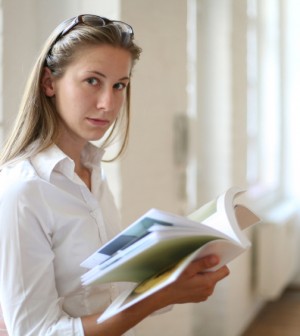- Finding Unshakable Power in a World That Wants to Pull Us ApartPosted 5 months ago
- What could a Donald Trump presidency mean for abortion rights?Posted 5 months ago
- Financial Empowerment: The Game-Changer for Women in Relationships and BeyondPosted 6 months ago
- Mental Health and Wellbeing Tips During and After PregnancyPosted 6 months ago
- Fall Renewal: Step outside your Comfort Zone & Experience Vibrant ChangePosted 7 months ago
- Women Entrepreneurs Need Support SystemsPosted 7 months ago
giving yourself permission to learn

By Tara Mohr
My son is learning to use his hands. Yesterday, we were sitting on the big green rocker, withGoodnight Gorilla before us, and he was working to get his hands to touch the page. He missed and tried again dozens of times, occasionally plopping his palm clumsily — but intentionally — onto the page. There were shouts of effort and whines of exhaustion. There was lots of trial and error. Over the past few months, he’s learned to do dozens of things this way.
I’d forgotten — or maybe never fully realized — how much effort and failure is involved in learning anything.
It’s hard to remember that after years of school, when we are typically “taught” something by a teacher — but not necessarily by practicing it–and then, from our first attempt, assessed for how good we are at it. We come to think about whether we are “good at” writing or “good at” math or “good at” sports – rather than seeing ourselves in a process of learning. Wouldn’t it be interesting to get to write 5 practice term papers – with feedback but no grade that “counted” – before we got to write the one that did?
Many of you know that I’ve been very impacted by Dr. Carol Dweck’s work, and her bookMindset. A Stanford University psychology researcher, the big idea of her work is this:
“In a fixed mindset, people believe their basic qualities, like their intelligence or talent, are simply fixed traits…In a growth mindset, people believe that their most basic abilities can be developed through dedication and hard work—brains and talent are just the starting point. This view creates a love of learning and a resilience that is essential for great accomplishment. Virtually all great people have had these qualities.”
I personally spent too many of my years living in a fixed mindset and now try to remember that growth, learning, skill development, mastery from practice are possible. And at the same time, I’d qualify that with the caveat that we all have natural aptitudes and abilities that make learning more easy or speedy for us in certain areas.
What’s new for me now is getting to watch a baby learn and see how undeniable it is that:
1. Learning is a process. It takes time.
2. The beginning steps are awkward and clumsy.
3. Learning takes effort, and tires us out.
I want to give myself permission to learn like that – with a novice stage, with awkward, clumsy moves, with lots of failure and with lots of time — whether I’m learning how to download podcasts onto my phone (still working on that one), learning a new dance in dance class, learning how to manage a team well, or learning how to craft a beautiful chapter in a book.
I offer this to you today. Where in your life or work would you benefit from remembering how learning really happens-and that it happens? Can you give yourself greater permission to be a learner?
 Tara Sophia Mohr is an expert on women’s leadership and well-being. She is the author of Playing Big: Find Your Voice, Your Mission, Your Message, forthcoming from Penguin in October 2014. She is the creator of the acclaimed Playing Big leadership program for women, which now has more than 1000 graduates from around the world.
Tara Sophia Mohr is an expert on women’s leadership and well-being. She is the author of Playing Big: Find Your Voice, Your Mission, Your Message, forthcoming from Penguin in October 2014. She is the creator of the acclaimed Playing Big leadership program for women, which now has more than 1000 graduates from around the world.
Tara writes a popular blog on women’s careers and wellbeing at www.taramohr.com and has been featured on The Today Show and in publications ranging from Huffington Post to Harvard Business Review to MariaShriver.com. Tara received her MBA from Stanford University and her undergraduate degree in English literature from Yale. In 2010, Tara was named a Girl Champion by the Girl Effect organization, honoring her work on girls’ education in the developing world.
She is also a poet, and the author of Your Other Names: Poems for Wise Living. She lives in San Francisco and loves dance, art, and long walks with her beloved husband, son and golden retriever.






